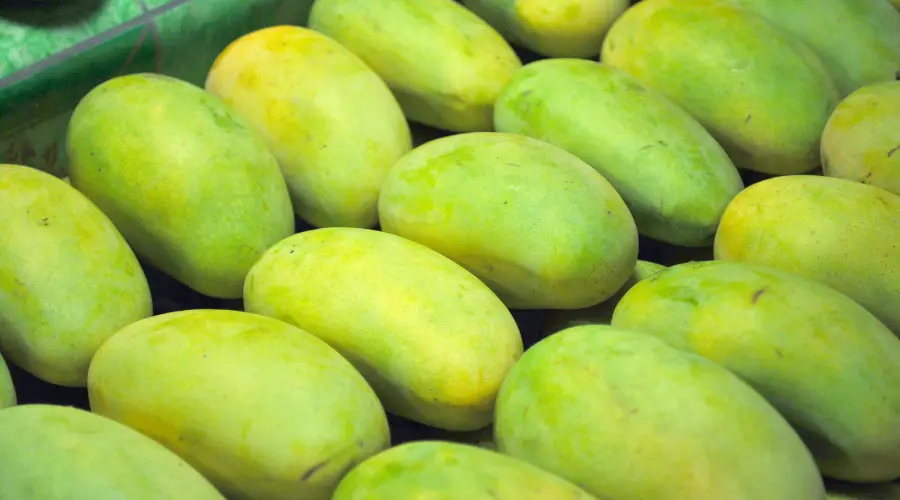Cashews are a popular snack among humans, but some horse owners may wonder if their equine friends can safely enjoy this nut as well.
The answer is yes, horses can eat cashews, but in moderation and with some precautions.
We’ll go into the compatibility, safety, and suggested dosages of feeding cashews to horses in this blog post. We’ll also look at various nut and seed varieties that are safe for horses as well as how to feed them to horses.
Is it safe for horses to eat cashews?
Horses may normally consume cashews without harm, but they shouldn’t make up a large amount of their diet. According to Dr. Clair Thunes, a nutritionist for horses, cashews are a fantastic source of protein and minerals like copper and magnesium. They could cause weight gain if consumed in excess because they are high in calories and fat.
Are cashews a suitable addition to a horse’s diet?
As they include crucial nutrients that might improve a horse’s general health, cashews can be an appropriate addition to the diet of horses. One wonderful way to obtain protein, which is crucial to body development as well as repair, is cashews. The minerals in them promote muscle and brain health, as well as red blood cell production.
Similarly, cashews offer beneficial lipids for your horse’s skin and coat, such as monounsaturated and polyunsaturated fats. Cashews are also a fantastic choice for horses with overall high energy requirements such as competitive horses, because these fats can also serve as an important source of energy.
Despite supplementing cashews to a horse’s diet can be helpful it’s critical to bear in mind that cashews shouldn’t be used in place of the necessary sources of protein, vitamins, and minerals that horses needed for optimal development.
Cashews should be provided in moderation in addition to a nutritious diet of hay or grasslands, combined with other risk-free possibilities like almonds, pumpkin seeds, and seeds from sunflowers.
Horse owners may make sure that their equine companions get all the nutrients they need to stay healthy by combining a range of nutritious meals.

What are the potential risks of feeding cashews to horses?
The main potential risk of feeding cashews to horses is overfeeding or an allergic reaction. Since nuts, particularly cashews can cause allergies in horses, it’s crucial to introduce them gradually and watch for any negative reactions. Overfeeding cashews can also result in weight gain, gastrointestinal issues, and even colic.
Related: Find out if horses can eat raspberries, including the benefits and risks. Learn more about feeding raspberries to your equine friend and make informed decisions.
How much cashews can horses safely consume?
According to Dr. Thunes, horses can safely consume a few cashews as a treat or supplement to their regular diet.
But if the horse is prone to weight gain or digestive problems, it’s crucial to keep the dose small and infrequent. Cashews should be introduced gradually, as with any new meal, to see how the horse responds.
What other types of nuts or seeds are safe for horses to eat?
Other nuts and seeds are safe for horses to eat as well. One excellent option for fiber, good fats, and muscle is almonds. They provide nutrition alongside vitamin E, calcium, and magnesium, each of which are vital nutrients for healthier bones and muscles.
Another wholesome and risk-free choice for horses is pumpkin seeds. They also include nourishing oils, protein, and considerable amounts of zinc, magnesium, and phosphorus. Antioxidants included in pumpkin seeds may benefit your immune system and general health.
Sunflower seeds are a favorite food among horse owners. Protein, good fats, fiber, and minerals like selenium that support the body’s defenses are abundant in them. Additionally beneficial to a horse’s skin and coat health are sunflower seeds.
It’s crucial to remember that giving nuts and seeds to horses as a supplement to a balanced diet should only be done in moderation.
Related: Discover the surprising health benefits and potential risks of feeding horses maple syrup. Uncover how this natural sweetener can support their overall well-being.
When giving cashews to horses, are there any safety measures to be taken?
Avoiding salted or flavored cashews is crucial when feeding horses, as these can contain dangerous ingredients. Before giving cashews to horses, it’s also crucial to slice or grind them to lower choking hazards. In order to prevent any bad effects, it is crucial to add cashews gradually and in small amounts.

Should cashews be fed to horses on a daily basis or only as a treat?
Cashews are best given to horses as a treat or occasional supplement to their regular diet. They could give some nutritional advantages, but the protein, vitamins, and minerals that ponies need to prosper shouldn’t be supplanted by those. Regular consumption of a lot of cashews might result in weight gain and other ailments.
Related: Discover whether horses can safely eat bok choy and be amazed by the surprising answer! Learn more about equine nutrition and dietary considerations.
Conclusion
Cashews are appropriate for horses if consumed in moderation so long as they start eating them gently and in limited quantities. Despite cashews could provide some nutritional advantages, they shouldn’t serve as the main food source. Cashews, together with other without concern possibilities like almonds, pumpkin seeds, and sunflower seeds, should only be distributed to horses in moderation. Never forget to seek advice from professionals.



